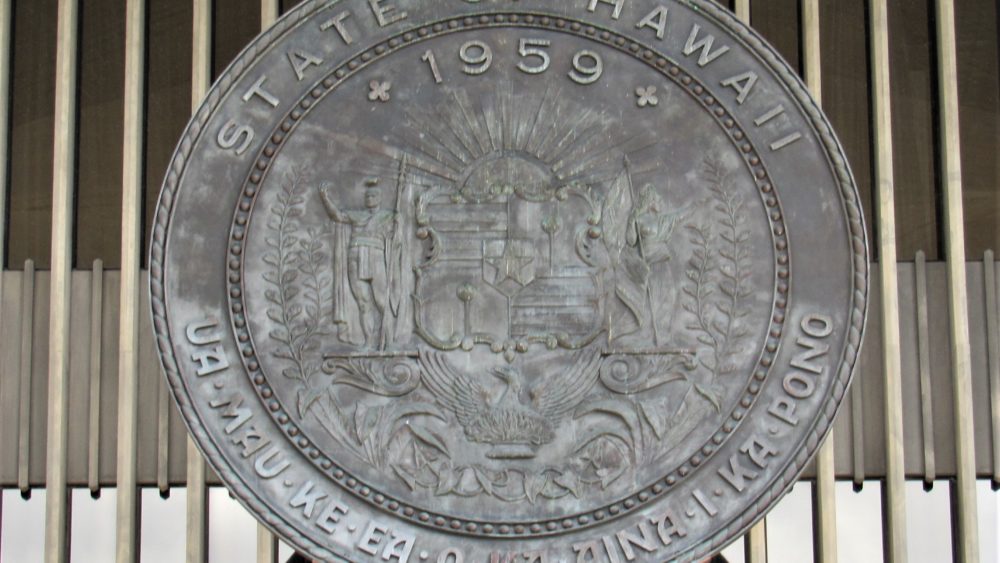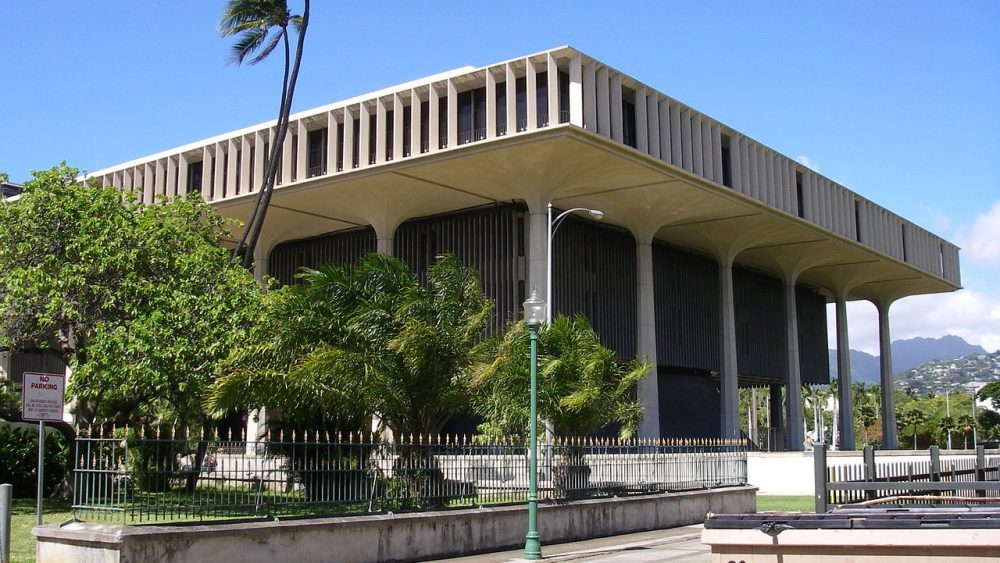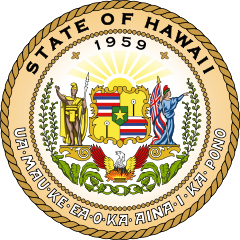December 14, 2020 •
Hawaii Ethics Commission Publishes Administrative Rules, Lobbyist Training

State of Hawaii
The Hawaii Ethics Commission administrative rules on gifts and lobbying are now live. Additionally, optional lobbyist training sessions will take place on the mornings of January 6, 2021 and January 12, 2021 at 10 a.m. Title 21 of the Hawaii […]
The Hawaii Ethics Commission administrative rules on gifts and lobbying are now live.
Additionally, optional lobbyist training sessions will take place on the mornings of January 6, 2021 and January 12, 2021 at 10 a.m.
Title 21 of the Hawaii Administrative Rules provides greater clarity on lobbyist registration and reporting requirements of the Hawaii Revised Statutes and memorializes longstanding ethics commission advice.
Noteworthy rule provisions include the requirement that expenditures are reported on an accrual basis, and a lobbyist registration exemption for individuals who work behind the scenes to draft testimony, research, and work under the direction of a registered lobbyist without directly communicating with legislative or executive branch officials.
Lobbyists interested in attending either of the training sessions may register at: https://ethics.hawaii.gov/ethicstraining_schedule/.

The Hawaii Ethics Commission approved a package of proposals on June 18. These proposals amend and adopt portions of the Hawaii Administrative Rules related to lobbying and gifts. The amendments in chapters one through six address the Commission’s operations and […]
The Hawaii Ethics Commission approved a package of proposals on June 18. These proposals amend and adopt portions of the Hawaii Administrative Rules related to lobbying and gifts.
The amendments in chapters one through six address the Commission’s operations and procedures. Additionally, chapters seven through 10 now include sections on “Lobbying” and “Gifts and Fair Treatment”.
The proposed rules do not purport to amend any statutes. Rather, they are designed to interpret and execute the statutes enacted by the Legislature.
Section 21-10-5
Section 21-10-5, statement of contributions and expenditures, addresses the statutory requirement that statements of contributions and expenditures must be filed by up to three different entities. This could be the client, the employing organization, and the lobbyist. Or, in the case of lobbyists employed in-house by the client, the client or employing organization and the lobbyist.
This rule creates a single, client-based report rather than requiring separate reports from the client, the employing organization, and the lobbyist. This single, client-based reporting method avoids double or sometimes triple reporting. Additionally, it eliminates the practice, when clients or employing organizations cover expenditures, of having lobbyists submit reports listing “zero” expenditures.
Section 21-10-1
Section 21-10-1 contains definitions of “direct lobbying” and “grassroots lobbying” to demonstrate that lobbying can be both direct and indirect, consistent with the definition of lobbying in Section 97-1 of the Hawaii Revised Statutes. Under Rule 21-10-1, direct lobbying is defined as any oral or written communication with a legislator, an employee, intern, or volunteer of the legislature or an agency that would appear to a reasonable person to be an attempt to influence legislation or rule-making.
Additionally, grassroots lobbying is defined as any oral or written communication directed at any member of the public that expresses an opinion about existing or potential legislation, administrative rule, or ballot issue and includes an explicit or implied call to action.
Section 21-7-6
Section 21-7-6, valuation of gifts, defines the value of a gift as the cost that a member of the public would reasonably expect to incur to purchase it. For example, If the face value of a ticket to an event is $100, but the event is sold out and tickets on the secondary market are $500 at the time the ticket is offered as a gift, the value of the ticket is $500.
The rules must now be approved by the Department of the Attorney General, and then by the governor. Once approved by both offices, they will be posted with the Office of the Lieutenant Governor for 10 days before becoming effective.
December 7, 2018 •
Hawaii Announces New Electronic Filing System
The Hawaii Ethics Commission will launch a new electronic filing system for lobbying registrations and disclosures beginning in January 2019, allowing lobbyists and organizations to register online for the 2019-2020 legislative biennium. Lobbyists who plan to continue lobbying in 2019 […]
 The Hawaii Ethics Commission will launch a new electronic filing system for lobbying registrations and disclosures beginning in January 2019, allowing lobbyists and organizations to register online for the 2019-2020 legislative biennium.
The Hawaii Ethics Commission will launch a new electronic filing system for lobbying registrations and disclosures beginning in January 2019, allowing lobbyists and organizations to register online for the 2019-2020 legislative biennium.
Lobbyists who plan to continue lobbying in 2019 must renew registrations by Monday, January 28, 2019. Commission staff are available to assist lobbyists who have already registered for the 2019-2020 lobbying period via a paper filing.
Lobbying expenditure reports for 2019 may be submitted electronically through the new e-filing system as early as March 2019.
May 23, 2016 •
Monday News Roundup
Lobbying Rhode Island: “Do R.I. General Assembly Grants Funnel Back into Lobbying?” by Patrick Anderson for Providence Journal Campaign Finance “G.O.P. Donors Shift Focus from Top of Ticket to Senate Races” by Nick Corasaniti and Ashley Parker for New York […]
 Lobbying
Lobbying
Rhode Island: “Do R.I. General Assembly Grants Funnel Back into Lobbying?” by Patrick Anderson for Providence Journal
Campaign Finance
“G.O.P. Donors Shift Focus from Top of Ticket to Senate Races” by Nick Corasaniti and Ashley Parker for New York Times
California: “Tony Strickland Agrees to $40,000 Ethics Fine” by Taryn Luna for Sacramento Bee
New York: “De Blasio’s Elections Strategy, Under Scrutiny, Recalls Predecessor’s” by William Neuman for New York Times
Ethics
Arkansas: “Ark. High Court Rejects Lawsuit over Campaign Finance Ballot Measure” by Andrew DeMillo (Associated Press) for Baxter Bulletin
Hawaii: “Hawaii Ethics Commission Picks Interim Director” by Nathan Eagle for Honolulu Civil Beat
Hawaii: “Totto Tells Ethics Commission to Scrap ‘Silly’ Time Sheet Rules” by Nick Grube for Honolulu Civil Beat
Michigan: “Panel OKs Added Transparency for Governor, Legislators” by Jonathan Oosting for Detroit News
Elections
“A History of Insurgent Candidates’ Impact On Down-Ballot Races” by Louis Jacobson for Governing
Legislative Issues
“Chaos in House after GOP Votes Down LGBT Measure” by Cristina Marcos and Mike Lillis for The Hill
Hawaii Gov. Neil Abercrombie is seeking candidates and recently expediting appointments for various state boards and commissions. More than two dozen volunteer members resigned following the enactment of Senate Bill 2682, a bill requiring them to make their financial disclosure […]
 Hawaii Gov. Neil Abercrombie is seeking candidates and recently expediting appointments for various state boards and commissions. More than two dozen volunteer members resigned following the enactment of Senate Bill 2682, a bill requiring them to make their financial disclosure statements available to the public as well as to the Hawaii State Ethics Commission.
Hawaii Gov. Neil Abercrombie is seeking candidates and recently expediting appointments for various state boards and commissions. More than two dozen volunteer members resigned following the enactment of Senate Bill 2682, a bill requiring them to make their financial disclosure statements available to the public as well as to the Hawaii State Ethics Commission.
Originally on his list of bills to veto, Abercrombie allowed the financial disclosure bill to become law without his signature.
The Natural Energy Laboratory of Hawaii, the State Land Use Commission, the Agribusiness Development Corporation, the Hawaii Board of Land and Natural Resources, the Hawaii Housing Finance and Development Corporation, and the University of Hawaii Board of Regents are among those having lost members as an unintended consequence of the bill aimed at increasing transparency. Some were forced to cancel meetings because they lacked enough members for a quorum.
State and Federal Communications, Inc. provides research and consulting services for government relations professionals on lobbying laws, procurement lobbying laws, political contribution laws in the United States and Canada. Learn more by visiting stateandfed.com.

